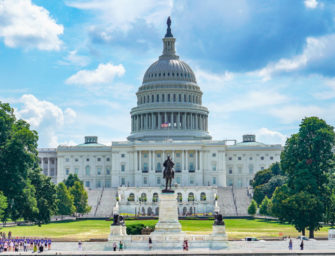AGU statement on the earthquakes in Turkey and Syria
In the early morning hours of Monday, 6 February, a magnitude 7.8 earthquake hit southeastern Turkey and parts of Syria. The quake was followed by a magnitude 7.5 event nine hours later, along with more than 200 aftershocks.
The scope and scale of the earthquake is overwhelming, and our hearts go out to all those affected. The destruction and rising death toll have galvanized the international community into aid and relief efforts.
As the world’s largest Earth and space sciences organization, AGU applauds these actions and calls for sustained, committed efforts across all possible governmental and NGO bodies.
Much like the universality of science, natural disasters know no borders or nationalities. It is more important than ever that this principle is honored and amplified as the world races in broad partnership to respond.
Varying degrees of building code compliance coupled with the ongoing war and societal stressors destabilizing already-vulnerable structures in the region has deepened this humanitarian crisis. AGU recognizes natural disasters will always occur and wars, unfortunately, will be waged, but with our significant membership of seismologists, we know firsthand the crucial contribution science can make when working in close partnership with planners, municipalities, and engineers.
AGU has extensive resources for use and reference and will continue to cover these topics. This includes our special collection in Geophysical Research Letters on seismology in the region and reporting in Eos on how the 1999 earthquake in Izmit, Turkey changed the motion of the Anatolian plate.
AGU also commends all the hard work Earth scientists are engaged in to provide a world that is, if not fail-safe, at least fully educated and prepared. Part of this process is educating everyone to take notice of and trust hazard maps. Turkish scientists have done important work here, diligently managing their national seismic hazard maps. In addition, organizations such as GeoHazards International need our support and resources as they work to minimize these crises.
Let us do everything we can now to coordinate relief and recovery. And let us continue to commit our science to expand seismic resilience worldwide.



There are no comments
Add yours